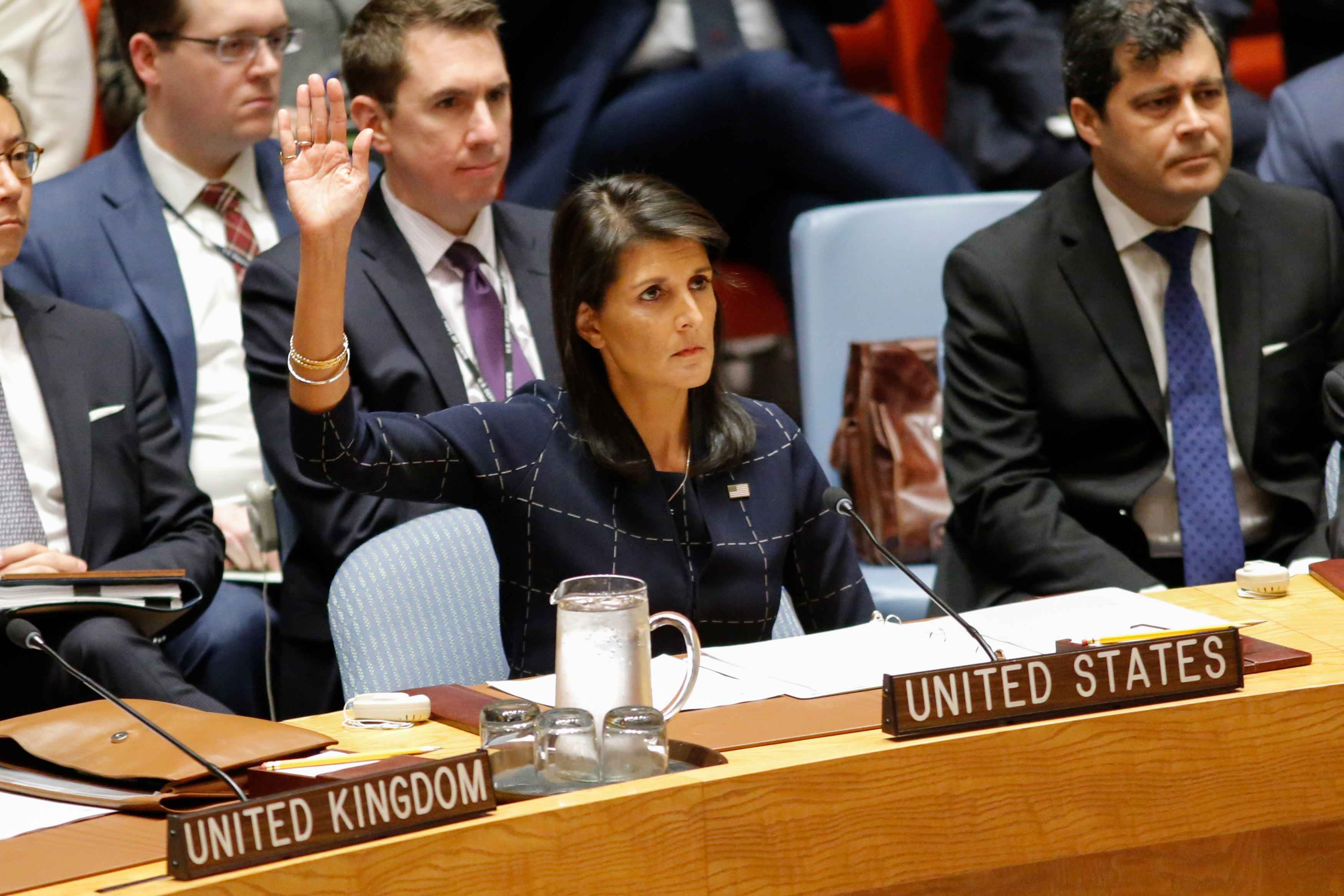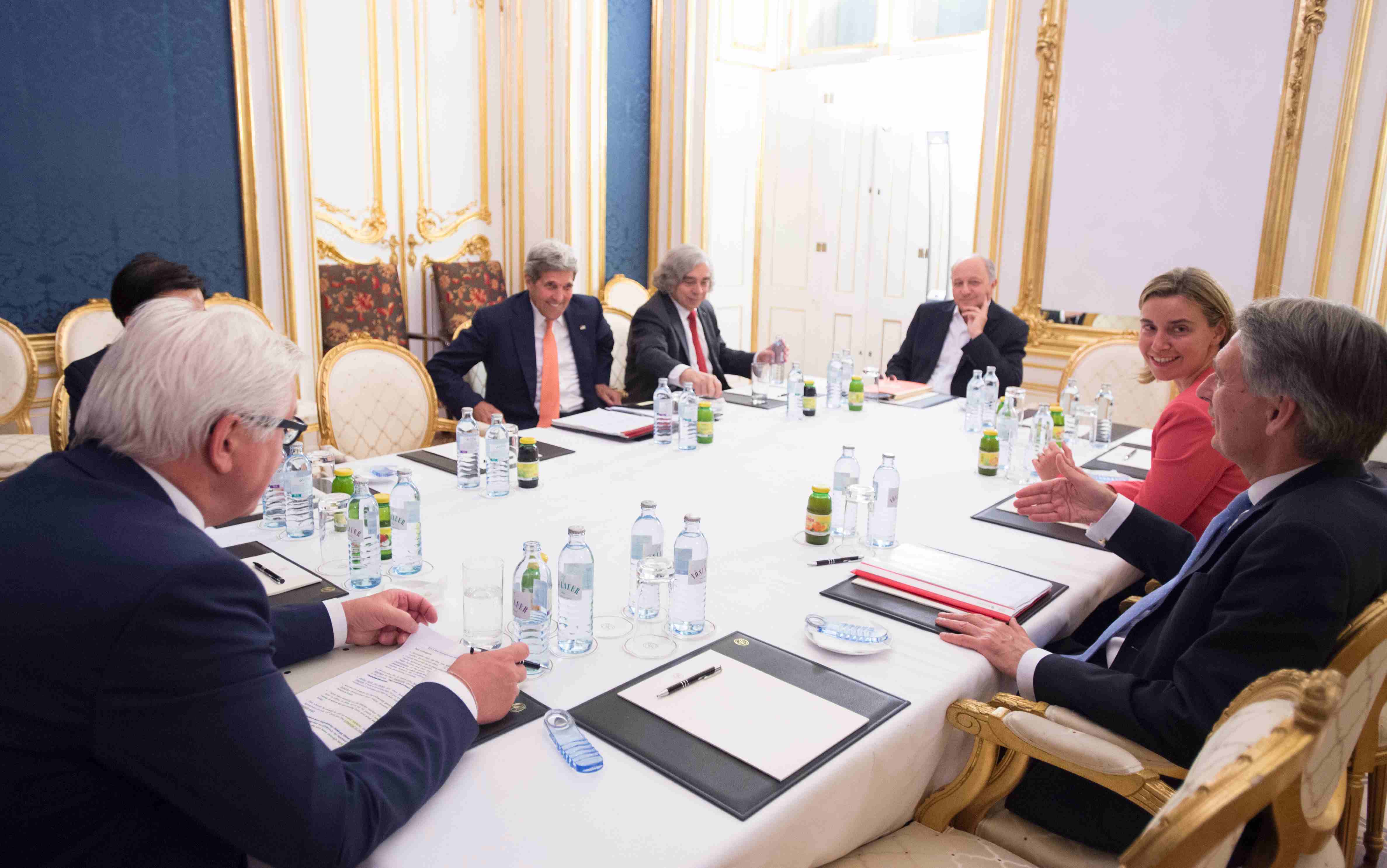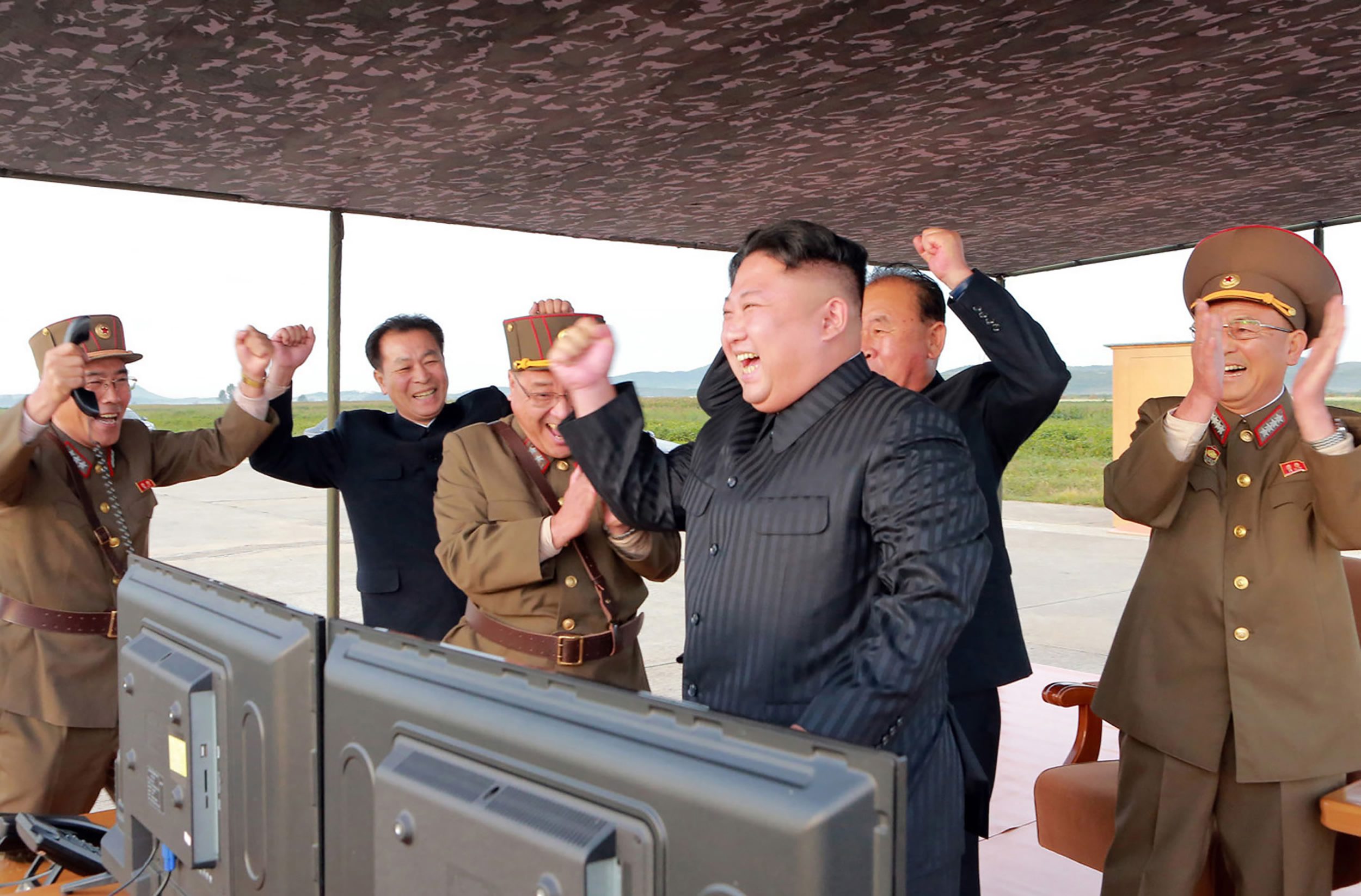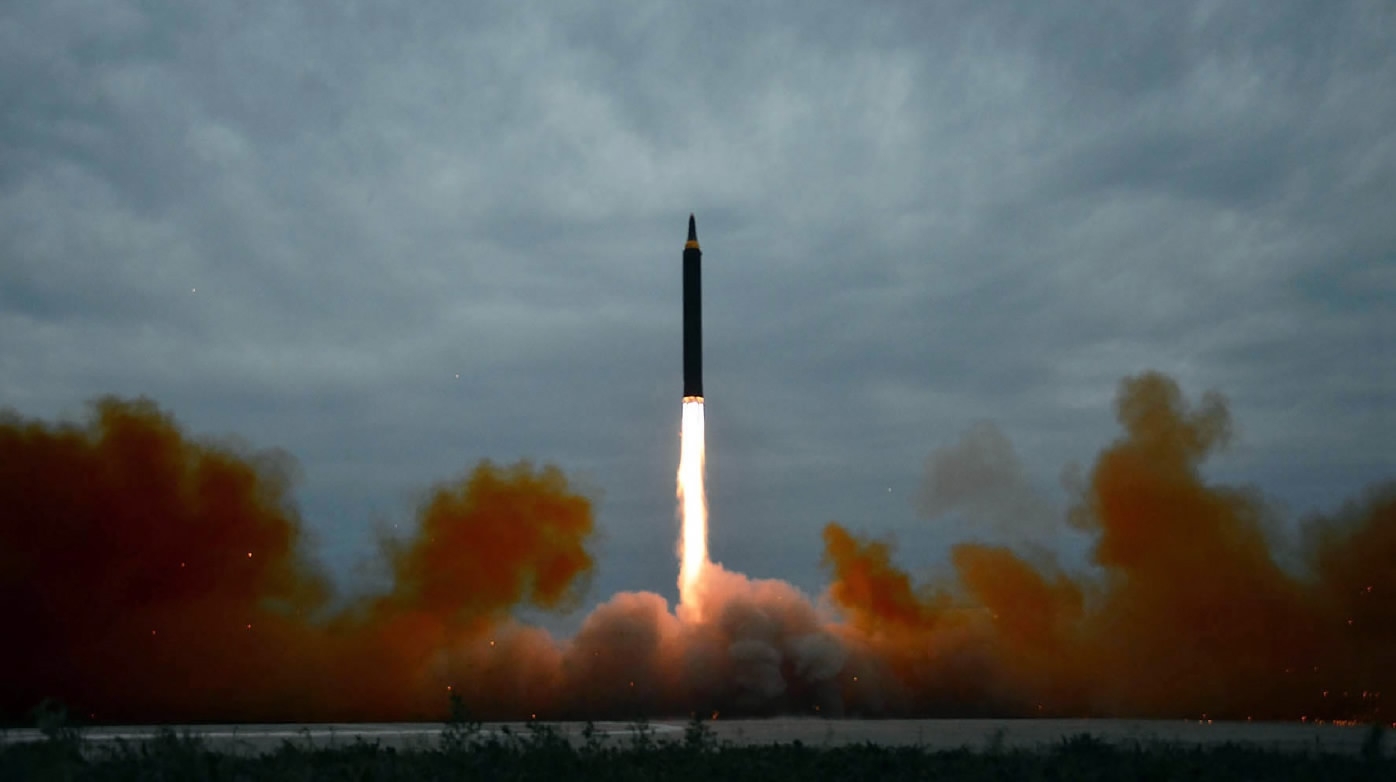The European Union can help mediate the nuclear crisis on the Korean Peninsula, much as it did with Iran, as the international community remains split about the way forward, according to EU experts.
“The EU needs to play a role when it comes to unifying the international community in its response to the North Korean (the DPRK) nuclear program,” Mathieu Duchatel, Asia deputy director at the European Council on Foreign Relations (ECFR), an EU think tank, told journalists at a panel on peace and security in Beijing on Monday.
“The non-proliferation system is at stake on the Korean Peninsula.”
Moreover, there is growing concern in Brussels and other capitals that the DPRK threat now extends beyond East Asia and North America.
“You can see from recent statements by some European officials that increasingly some Europeans perceive the North Korea nuclear program as potentially also a threat for the European continent,” according to Duchatel.
Double suspension or military action?

United States Ambassador to the United Nations Nikki Haley rises her arm as she votes at a UN Security Council meeting over the DPRK's new sanctions on September 11, 2017 at the UN Headquarters in New York. /AFP Photo
United States Ambassador to the United Nations Nikki Haley rises her arm as she votes at a UN Security Council meeting over the DPRK's new sanctions on September 11, 2017 at the UN Headquarters in New York. /AFP Photo
The DPRK’s recent nuclear and missile tests have brought new urgency to the issue and last week, the United Nations Security Council (UNSC) approved new sanctions against Pyongyang.
But there is still strong disagreement on whether sanctions are enough or regional partners need to resort to military action.
China and Russia have been pushing for a so-called “dual suspension” that would see the US and South Korea halt joint military drills in return for the DPRK suspending its nuclear program.
The US, Japan and South Korea, on the other hand, have been more combative, with South Korean President Moon Jae-in on Friday declaring that dialogue with Pyongyang was “impossible” and that Seoul has "the power that can destroy” the DPRK.
All five countries were previously involved in so-called six-party talks to rein in Pyongyang’s nuclear drive.
Now the EU could be the one to help bring the sides together, according to Duchatel.
“Despite the fact that sanctions have been voted, in fact the international community is not very united when it comes to dealing with the North Korea nuclear program,” he noted.
“So maybe there is some space for the EU to reduce the gap between those two positions.”
The Iran model

(L-R) Then German Foreign Minister Frank-Walter Steinmeier, US Secretary of State John Kerry, US Secretary of Energy Ernest Moniz, French Foreign Minister Laurent Fabius, EU Foreign Policy Chief Federica Mogherini and British Foreign Secretary Philip Hammond meet at the Palais Coburg Hotel, site of the Iran nuclear talks, in Vienna, Austria on July 14, 2015. /AFP Photo
(L-R) Then German Foreign Minister Frank-Walter Steinmeier, US Secretary of State John Kerry, US Secretary of Energy Ernest Moniz, French Foreign Minister Laurent Fabius, EU Foreign Policy Chief Federica Mogherini and British Foreign Secretary Philip Hammond meet at the Palais Coburg Hotel, site of the Iran nuclear talks, in Vienna, Austria on July 14, 2015. /AFP Photo
Three EU countries – Germany, France and the UK – were involved in talks that led to the historic Iran nuclear deal in 2015 and EU Foreign Policy Chief Federica Mogherini – and before her Catherine Ashton – was front and center during negotiations.
This could now be a model for the DPRK talks, the experts argued.
“There are similarities,” said Marc Otte, a former Belgian diplomat and adviser to EU foreign policy chief Javier Solana, although he cautioned “you should never copy-paste diplomatic procedure.”
Ambiguity ahead

This undated picture released from the DPRK's official Korean Central News Agency (KCNA) on September 16, 2017 shows leader Kim Jong-Un (R) inspecting a launching drill of the medium-and-long range strategic ballistic rocket Hwasong-12 at an undisclosed location. /AFP PHOTO/KCNA viaKNS
This undated picture released from the DPRK's official Korean Central News Agency (KCNA) on September 16, 2017 shows leader Kim Jong-Un (R) inspecting a launching drill of the medium-and-long range strategic ballistic rocket Hwasong-12 at an undisclosed location. /AFP PHOTO/KCNA viaKNS
So far the EU has not sided with either the US and its allies, or China and Russia, on the DPRK issue. And this will have to continue if it joins talks.
“If the EU can play a positive role, it will need to remain ambiguous when it comes to double suspension on the one hand, military pressure on the other hand,” said Duchatel.
In the Security Council, the recent string of DPRK missile and nuclear tests has at least accelerated the debate. UNSC members have often been slow to impose sanctions in the past. But their decision to slap Pyongyang with a new round last week, just eight days after its latest nuclear test showed “all members of the Security Council agree on the urgency of the situation,” said ECFR Asia director Francois Godement.
Now “there is a necessity to get the five permanent members of the Security Council to agree on a political line whether it’s sanctions or incentives,” he concluded.





